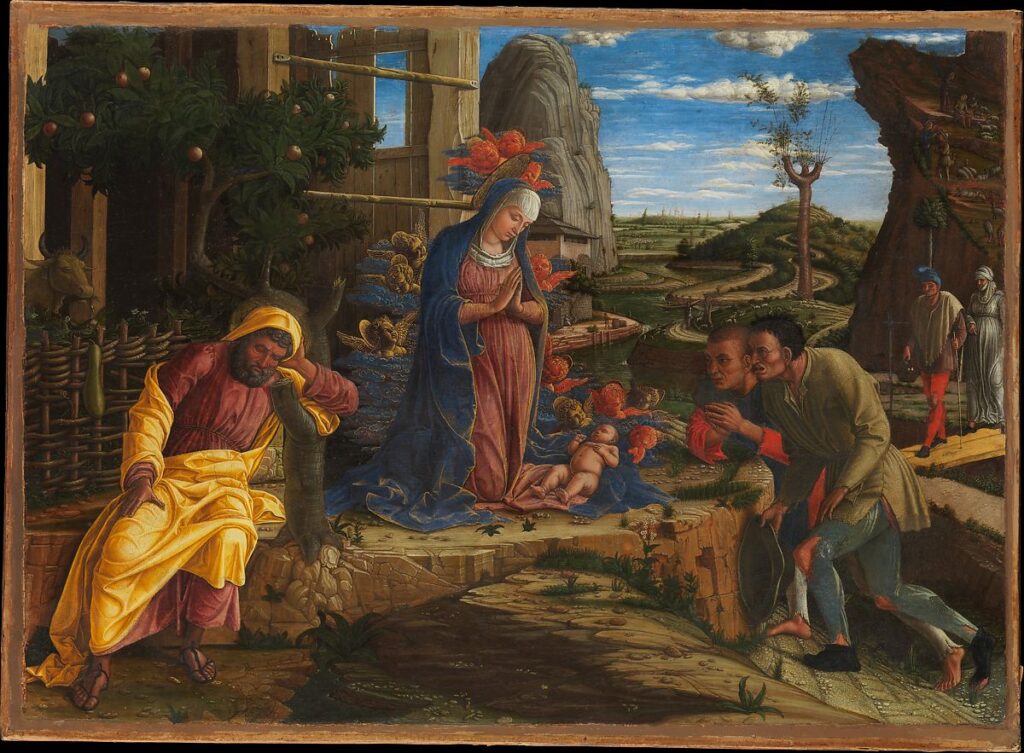Spiritual Sunday
Because I’ve been reading and enjoying George MacDonald’s Sir Gibbie, a Victorian novel about a blessed mute (thanks to Lani Irwin for the alert), I was delighted to come across a MacDonald Advent poem. It was recommended by Victoria Emily Jones on her blog Art and Theology.
In “That Holy Thing,” MacDonald discusses the surprise of the messiah arriving, not as a conquering king, but as “a little baby thing.” That’s how God works in the world, he observes–which is to say, not in any way that we can predict. We try to tailor God to our needs, only to realize that His or Her vision is far broader than we at first imagined.
“If you want to make God laugh, tell him your plans,” says mystic Carolyn Myss. Or as MacDonald puts it, “My fancied ways why shouldst thou heed?/Thou com’st down thine own secret stair.”
That Holy Thing
By George MacDonaldThey all were looking for a king,
To slay their foes, and lift them high:
Thou cam’st a little baby thing
That made a woman cry.
O Son of Man, to right my lot
Naught but thy presence can avail;
Yet on the road thy wheels are not,
Nor on the sea thy sail.
My fancied ways why shouldst thou heed?
Thou com’st down thine own secret stair;
Com’st down to answer all my need,
Yea, every bygone prayer!
Along with Jones’s Art and Theology, I should also thank Missy Andrews of A Literary Advent, who appears to have alerted Jones to the poem. Andrews provides some biographical context, knowledge of which makes his observations about God even more impressive. Andrews reports that MacDonald experienced numerous tragedies, including the loss of several children. Nevertheless, she says that he “never doubted the love of his divine Father:
For his deep faith in God’s love for him, he credited his relationship with his earthly father, who not only taught him the doctrines of grace, but also modeled them to him. Macdonald’s life was full of waiting and suffering. His Diary of An Old Soul chronicles many of his petitions and meditations, reflections which return again and again to divine love, attention, and wisdom.
And further:
The poet notes that his own travails and petitions, his own desperate need of God’s intervening help, is denied in its immediacy as well. For, although the Son of Man’s own presence alone can help to “right the lot” of the poet, his coming is not visible by road or sea. In this way, MacDonald acknowledges that his own expectations, like those of his spiritual forebears, eclipse his ability to see the Lord’s coming in his own circumstances. He acknowledges the differences between God’s ways and man’s, in faith acknowledging that the Lord answers man in his own ways and times, keeping secret His approach, but stealthily accomplishing man’s every need, answering his every prayer through the mystery of incarnation. This incarnate Child, the Son of Man, replete with humanity and no stranger to suffering, suggests a remedy for all who wait and suffer.
God, as MacDonald enthusiast C.S. Lewis notes of Aslan, is not a tame lion. God may “com’st down to answer all my need,/ Yea, every bygone prayer!” but it will not always be in the way we anticipate.


